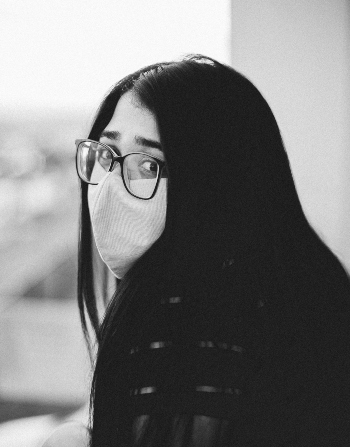 By Jane Highley
By Jane Highley
Ever since our area went into the “green” phase of the state’s reopening plan, everybody in my family was cautiously eager to venture out wherever we could safely. Everyone but my eight-year-old son. Grant is not a shy kid, but he is also not necessarily outgoing. He loves building LEGO towns, watching Star Wars, reading Captain Underpants, drawing comics—and he has been content to stay home to do all of those things for the past three months. While our family of five consists of happy homebody-types, it turns out that Grant has a particularly strong preference to stay home. Unless we are going for a walk or a bike ride, Grant has made it plainly clear to us that he does not want to go to the grocery store, Target, Lowes, and CVS.
There was a rare occasion last month that I had to take all three kids to run errands, and after making two stops, Grant was quite unhappy. His mask could not hide his moody face; that’s not something a mother would miss. In fact, I could tell by the way his eyebrows bunched up like two small fuzzy caterpillars, he was not happy to be out and about. It’s one thing when a kid is grumpy due to the oppressive heat or fatigue (or both!), but quite another when he is silent and miserable. On the way home, I asked him what was wrong or if he felt sick, but he merely said that he was fine. I didn’t press further then, but just last week, while we were walking on the boardwalk at Bethany, his face looked stormy. Again, I asked him if he felt sick, but he shook his head and walked faster presumably to avoid further parental interrogation. And yet, as soon as we returned to our beach rental, he seemed to have reverted back to himself, making bathroom jokes about the word “duty” and, in turn, making the rest of us laugh, too.
I’m no child development expert, and I wish I were. But I do know my child well enough to suspect that perhaps home has become to him more than just a familiar place in which he can enjoy the comforts of snacks, reliable wifi, and climate control. To a child whose world was comparatively small when measured by everyday routines—school bus rides, swim lessons at the Y, trips to the library—the world got even smaller when we were all required to stay home. Our house truly became a shelter, a base, a haven. Like the groundhog who jumps at the sight of his own shadow, Grant is probably not alone in feeling spooked and apprehensive at the sight of all these masked people, including his own parents and siblings. Wearing a mask and seeing others in them is a constant reminder to all of us that things are not normal, even though people at the Delaware shore were enjoying plenty of sand, sun, and ice cream. The stark contrast in the spring quarantine to the summer reopening must be quite jarring for my son, who must have found so much comfort in the security and predictability of quarantine life.
This is the point at which I should be sharing what lesson I’m learning or what bright epiphany I’ve experienced, but I’ve got nothing. All I can do is remind my children (and myself) that God is good, He is ever-present, and His love for sinners like us can suffer way longer than our tolerance for face masks. I love Paul’s reminder to Timothy about the immutable nature of Christ’s love: “…if we are faithless, he remains faithful—for he cannot deny himself” (2 Timothy 2:13). Whether we are home or away, we are still his sheep and “He will tend his flock like a shepherd; he will gather the lambs in his arms…” (Isaiah 40:11).
